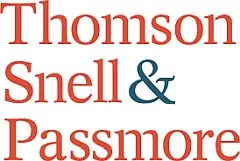It is only natural to want to give your loved ones the very best start in life. As the cost of private education in the UK continues to rise and with the possibility that a future Government may push these even higher by removing the VAT exemption for fee-paying schools, now more than ever, Grandparents are stepping in to help pay for school fees.
Doing so can be a very tax efficient way of passing on assets as part of a wider estate plan, but it is important for individuals to carefully consider the best way of gifting money for school fees, based on their unique situations.
Here, we outline some of the options open to those who are thinking about funding private education for their grandchildren.
Gifting cash outright to pay for school fees
Perhaps the simplest option is making an outright gift to pay for school fees. Such gifts are Potentially Exempt Transfers (known as PETs) and are only taken into account for Inheritance Tax (IHT) purposes if you die within seven years of the gift. This is known as the 'seven year rule'.
Some gifts are completely left out of the IHT calculations, and are not subject to the seven year rule. You can give away £3,000 a year and can roll forward one year's allowance if it was not used the previous year. You can also give up to £250 to an unlimited number of people each year. However these are unlikely to be enough to cover school fees on their own.
Gifting cash out of surplus income
Regular gifts made out of surplus income rather than capital are exempt from IHT, and so paying school fees termly could fall under this. It is vital to keep detailed records of such gifts to assist your executors down the line. It is worth looking at HMRC's form IHT403 to see the type of records that your executors will be expected to provide to show that any gifts were actually out of surplus income and not investments or savings.
Setting up a trust to pay for school fees
Another option would be to set up a trust. This is a particularly good option if you want to give away money, but would still like to retain some control. There are a wide variety of trust structures, but the most likely ones to be used for this purpose are generally either a discretionary or bare trust.
There are specific tax implications involved with setting up trusts, including both IHT and Capital Gains Tax, so it is really important to take expert advice.
On a final note, while it is admirable to wish to help your loved ones, it is also important to ensure you retain enough capital to ensure you have a comfortable retirement, especially taking into account the rising cost of care. Only gift what you can afford.
The content of this article is intended to provide a general guide to the subject matter. Specialist advice should be sought about your specific circumstances.


